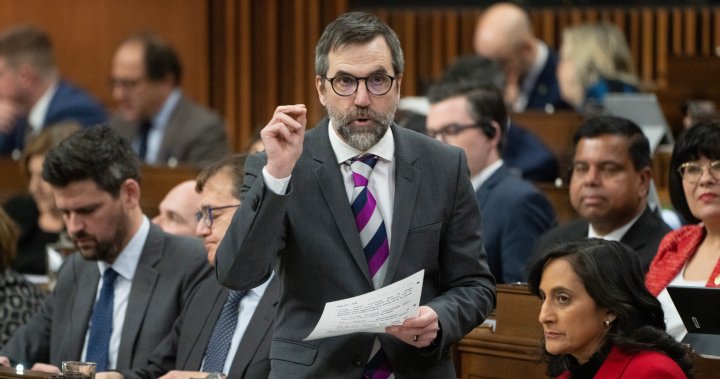On Tuesday, the G7 made a commitment to “phase out existing unabated coal-power generation in our energy systems during the first half of the 2030s or in a timeline consistent with keeping a limit of 1.5 degree Celsius temperature rise within reach.” This is intended to eliminate emissions from one of the worst sources.
Unabated coal refers to coal that is burned without the capture of carbon emitted, meaning countries could still use coal to generate power if power plants are fitted with carbon-capture technology to stop emissions from entering the atmosphere.
Only four Canadian provinces still burn coal to create electricity and all four, Alberta, Saskatchewan, New Brunswick and Nova Scotia, have committed to phasing it out or capturing all emissions from it by 2030.
An environmental analyst welcomed the development, with a caveat.
“It sends a really clear message that the developed nations, the advanced economies, are moving away from coal,” Pembina Institute analyst Will Noel told Global News, though he also said “power generation is the lower hanging fruit” among emissions reductions.
Still, Noel said, it represents huge progress because when it comes to power generation, coal “was one of the dominant sources of generation in many provinces 20 years ago.
But 59 per cent of coal mined in Canada was metallurgical coal, used in steel and iron production, according to the federal government.
“The Government of Canada is phasing out coal-fired electricity by 2030. However, coal will continue to be used for metallurgical processes,” the government’s website states.
The email you need for the day’s
top news stories from Canada and around the world.
“If we look from the global perspective, yes it adds to greenhouse gas (GHG) emissions,” McGill University mining professor Asug Pulung Sasmito said.
Countries can utilize carbon capture technology with thermal coal, but Sasmito estimated it will take “a few more years or maybe a decade to phase out metallurgical coal from the metallurgical process.”
He said burning metallurgical coal emits slightly less GHGs than thermal coal. And while it’s still bad for the environment, he said exporting it helps boost Canada’s economy. According to the Canadian government, metallurgical and thermal coal exports brought in $14 billion in 2022.
A new federal report published Thursday shows coal mining, production and metal production emitted less than 20 megatonnes of the carbon dioxide equivalent of GHGs in 2022, lower than the 306 megatonnes emitted by creating energy.
The report does not say how much of the 306 megatonnes was created by coal-fired electricity. It states coal use decreased by 74 per cent between 2005 and 2022.
Global News asked the environment minister how many megatonnes of carbon dioxide Canada created using coal-fired electricity in 2022 but did not hear back by deadline.
In 2022 Canada imported 2.8 megatonnes of metallurgical coal and 2.5 megatonnes of thermal coal but exported 12.1 and two megatonnes of the same, according to the federal government.
And Canada exported 27 and 22 per cent of its metallurgical coal to China and Japan, respectively, along with 52 per cent of its outgoing thermal coal also going to Japan.

China accounts for half of global coal demand, according to the International Energy Agency, an intergovernmental, climate-focused organization.
China was the world’s worst polluter in 2022, while Japan ranked eighth, according to the European Commission.
A 2021 report from the Mining Association of Canada states the mining sector directly employs 400,000 people and indirectly adds another 263,000 jobs.
Global News asked the environment minister’s office if Canada will keep exporting thermal and metallurgical coal past 2030.
Again, Global did not receive an answer by deadline.
“I think it’s important that we that we get our electricity clean,” Noel said, explaining that he’s welcomed the G7 commitment and looked forward to other sectors scaling up their GHG reductions.
© 2024 Global News, a division of Corus Entertainment Inc.





